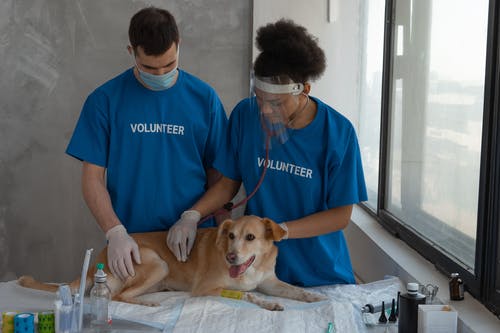
Understanding the Role of a Veterinary Diagnostic Lab in Pet Healthcare
June 12, 2023As a pet owner, you know that your furry friend’s health is of utmost importance. You’ve probably visited a vet for routine checkups, vaccinations, or even more severe issues like surgery. But have you ever thought about what occurs behind the scenes to diagnose and treat your pet? That’s where a vet diagnostic lab comes into play.
In this article, we’ll explore the critical role these labs play in pet healthcare and how they work hand in hand with other services like vet radiology to ensure your pet’s well-being.
What is a Veterinary Diagnostic Lab?
A veterinary diagnostic lab is a specialized facility that performs various tests on animal samples, such as blood, urine, or tissue, to diagnose and monitor diseases, detect parasites, and identify potential health risks. These labs are vital in helping veterinarians make informed decisions about the best treatment for your pet.
Key Functions of a Vet Diagnostic Lab
1. Disease Diagnosis
One of the primary functions of a vet diagnostic lab is to diagnose diseases in pets. This is achieved through a range of tests, such as:
- Blood tests: These are used to detect infections, measure organ function, and evaluate the immune system.
- Urinalysis: This test analyzes urine to identify potential kidney or urinary tract issues.
- Parasite screening: A vet diagnostic lab can identify parasites like fleas, ticks, and worms that may be affecting your pet’s health.
2. Monitoring Health Conditions
Vet diagnostic labs also play a crucial role in monitoring your pet’s ongoing health conditions. By regularly testing for specific markers or indicators, veterinarians can track the progress of a treatment plan or detect any changes in your pet’s health.
3. Preventative Care
Routine lab testing is an essential part of preventative care for your pet. Regular tests can help identify potential health issues before they become more severe, allowing for early intervention and treatment. This proactive approach can improve health outcomes and extend your pet’s life.
4. Supporting Vet Surgery and Radiology
Vet diagnostic labs often work in tandem with a vet surgeon or radiologist. For example, a lab may perform pre-surgical tests to analyze biopsy samples taken during a surgical procedure or ensure your pet qualifies for surgery.
Similarly, an animal radiologist that operates devices like X-rays and ultrasounds often relies on lab results to confirm or rule out specific diagnoses.
The Importance of Advanced Technology in Vet Diagnostic Labs
Like human medicine, veterinary medicine continually evolves with new technological advancements and diagnostic techniques. Vet diagnostic labs must stay up-to-date with these advancements to provide your pet the most accurate and reliable results. Some cutting-edge technologies you may find in a vet diagnostic lab include:
- Molecular diagnostics: These advanced tests can detect specific genes or proteins associated with diseases, allowing for more precise diagnoses and targeted treatments.
- Next-generation sequencing: This technology allows for rapid and accurate identification of various pathogens, such as bacteria, viruses, and parasites, by analyzing their genetic material.
- Digital pathology: Using computer algorithms to analyze tissue samples, digital pathology can provide faster and more accurate diagnoses, leading to better patient outcomes.
Choosing the Right Vet Diagnostic Lab for Your Pet
When it comes to selecting a vet diagnostic lab for your pet, there are a few factors to consider:
1. Accreditation
Look for a lab accredited by a reputable organization, such as the American Association of Veterinary Laboratory Diagnosticians (AAVLD). This ensures the lab meets high standards for quality and accuracy.
2. Experience
Choose a lab with a proven track record specializing in veterinary diagnostics and pet medications. This can ensure that your pet receives the best possible care.
3. Technology
Opt for a lab that uses the latest technology and diagnostic techniques to provide the most accurate and reliable results.
4. Communication
A good vet diagnostic lab should provide clear and timely communication with your veterinarian, ensuring they have the information they need to make the best decisions for your pet’s health.
Final Words
A vet diagnostic lab is essential to your pet’s healthcare, from diagnosing diseases to supporting services like vet surgery and vet radiology. Choosing a reputable and experienced lab ensures your pet receives the best possible care and stays healthy and happy for years. A healthy dog is a happy pet, and a top-notch vet diagnostic lab is crucial in making that happen.




